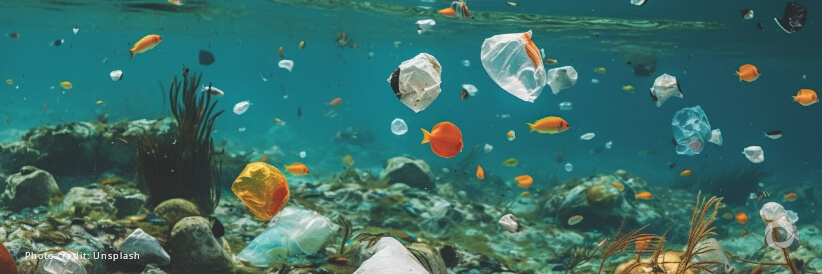The Asian Development Bank (ADB) has approved a $500 million loan to strengthen Indonesia’s program to reduce plastic marine debris. While a Global Plastic Treaty—an international initiative designed to tackle plastic pollution through a legally binding agreement—is currently being negotiated, this program will focus on supporting the country’s National Action Plan for Handling Marine Debris, which aims to reduce plastic waste flow into the oceans by 70% by 2025.
Indonesia’s coastal areas, home to 70% of the country’s population, are vital for marine tourism and fisheries, which contribute significantly to the economy. However, rampant plastic pollution poses a serious threat to marine ecosystems, causing annual damage of $450 million and endangering $3 billion in tourism revenue. Plastic waste in waterways increases the risk of flooding and damages the fishing industry and community livelihood. Plastic pollution threatens human health by contaminating the food chain, particularly for low-income households.
In 2018, the government committed to reduce 70% of plastic marine debris by 2025, through better solid waste collection, processing, recycling, and reuse, which was enacted through the National Action Plan for Handling Marine Debris. By the end of 2022, a 35% reduction from 2018 demonstrating strong progress but also the need for accelerated reforms to achieve the 70% target. ADB will support the action plan by improving plastic waste management, reducing problematic plastic production and consumption, and strengthening data and monitoring tools for policy making.
“ADB is pleased to partner with Indonesia to reduce marine debris while promoting the development of the blue economy,” said ADB Country Director for Indonesia Jiro Tominaga. “The pervasive presence of plastic marine debris not only erodes coastal livelihoods but also diminishes overall climate resilience. ADB remains steadfast in its support of Indonesia’s National Action Plan on Marine Debris, targeting the holistic management of factors contributing to plastic discharge into the ocean.”
The marine debris reduction program targets three main areas: addressing downstream waste management, implementing upstream interventions to reduce plastic waste production, and supporting critical elements necessary for overall reform success.
The program is being developed under ADB’s Blue Southeast Asia Finance Hub, the first marine debris program supported by ADB. It builds on ADB’s operational and knowledge work in Indonesia.

